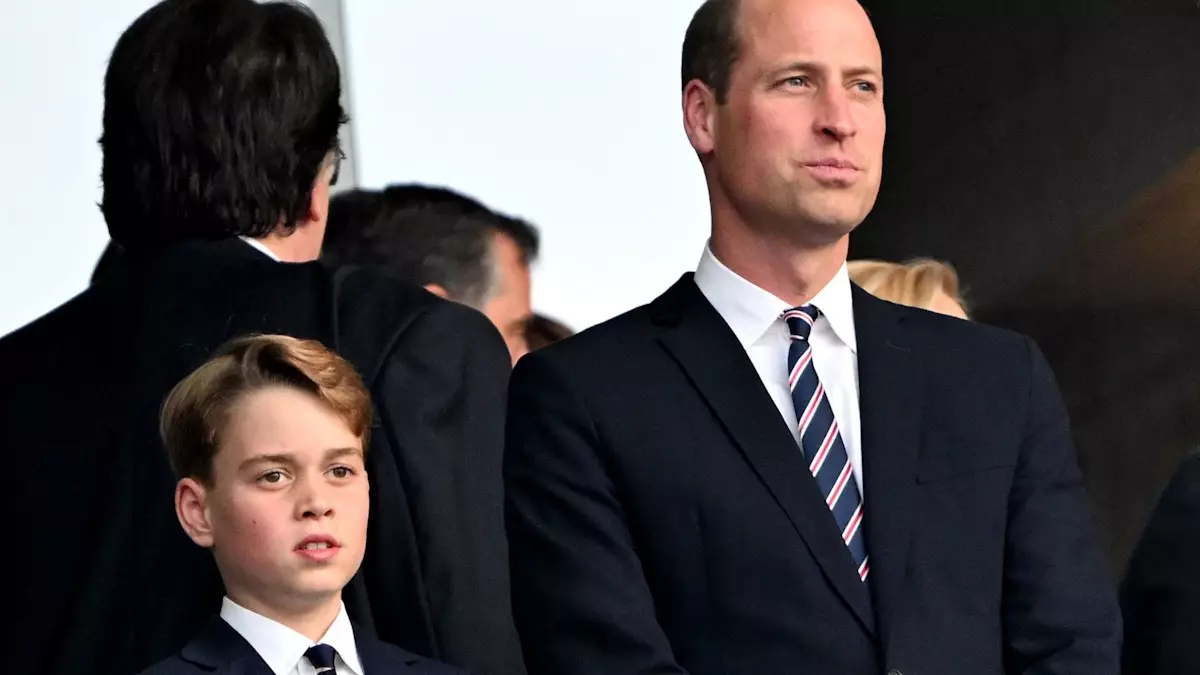In an unexpected twist of fate, the world of British football has found a charming connection with royalty through Prince William’s unwavering support for Aston Villa. At 41, William has not only exhibited his passion for the club throughout his life but has also successfully passed this enthusiasm to his eldest son, Prince George, who is now 10 years old. The dynamic between father and son embodies more than mere allegiance; it reflects a familial bond enriched through shared experiences, an important aspect that often goes unnoticed amidst the glamor surrounding the British royal family.
While William’s enthusiastic endorsement of Aston Villa appears seamless, it may not have been the outcome had he not intervened. During a recent casual meet-and-greet with Villa supporters at a Birmingham Wetherspoons, Prince William humorously recounted his determined efforts to steer his son away from the allure of Chelsea, a club that is popular among many around him. He remarked that while he would prefer not to impose a football team on his children as a rule, when it came to Chelsea, he drew a line. His reasoning was lightheartedly representative of a classic rivalry that transcends socio-economic barriers, demonstrating that even within the royal household, such rivalries have a place.
The encounter was far from formal. Fans were treated to an informal yet engaging dialogue, where laughter permeated the air. In the presence of fellow Aston Villa aficionados, William candidly shared insights about his family’s football affiliations. Darren Johnson, a Villa supporter, recollected William’s narrative of his cherished memories tied to the club, establishing a connection not only with George but also with fans who regard football as a cornerstone of their community.
The casual atmosphere fostered a sense of camaraderie between the prince and the supporters, as fans noted how William took the time to connect with them authentically. Stories shared over a drink at Wetherspoons spotlighted the often-overlooked human side of royals—an approach that likely endeared him further to the fans present. His readiness to engage further underlines a growing trend of public figures, including those of royal stature, embracing direct engagement with the populace.
Prince William’s passion is not an isolated phenomenon within royal encounters; rather, it signals a refreshing approach to the traditional roles and expectations placed upon royalty. He openly acknowledged that his affinity for Aston Villa was birthed from a childhood experience. The prince whimsically attributed this love to an early influence—an individual entrusted with his care, who happened to be a devoted Villa supporter. This gesture of affinity towards a particular club signifies the important role of personal histories in shaping allegiances, regardless of status or privilege.
Unlike many other royal family members, who remain indifferent to the culture of football, William’s engagement with the sport marks an intriguing rupture from royal norms. As he reveals, there exists a special connection shared with his son, George, through this shared interest of supporting Aston Villa. Their attendance at Villa Park for matches symbolizes not just their shared football fandom, but also the cherished moments they foster through this common ground.
While there remains an openness that Prince William instills in his children’s football preferences, he has inadvertently created a unique legacy for George. With a father who is a dedicated Villa fan, it’s natural for the young prince to embrace the club. The father-son duo’s outings have become iconic, displaying a delightful image of a royal family participating in a quintessentially British pastime.
As George grows older, the influence of his father’s dedication is evident, potentially setting the stage for a new generation of football enthusiasts within the royal family. However, the prince’s insistence on allowing his children the freedom to choose should resonate deeply with fans of the sport, showcasing that passion should be nurtured without imposition.
Ultimately, what emerges from Prince William’s bonding over Aston Villa with his son is a narrative that is as much about football as it is about family connection, heritage, and the continuing influence of sport within societal structures—even among royalty. The legacy being built adds to the rich tapestry of British culture and encourages other families to foster similar connections, irrespective of status or background.


Leave a Reply